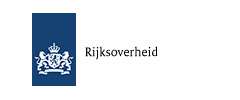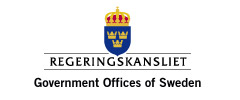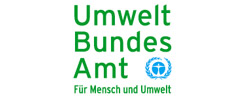Rio+20: Final Statement of the People's Summit
People's Summit Final Statement in Rio+20 for Social and Environmental Justice in Defense of Common Goods, agains the Commodification of Life
16.06.2012 |
The Peoplesí Summit is the symbolic moment of a new cycle in the trajectory of global struggles that produces new convergences between movements of women, indigenous peoples, blacks, youths, the farmers and peasants, family workers, people and traditional communities, fighters for the right to the city, and religions around the world. The assemblies, mobilizations and the Great March of peoples were the moments of maximum expression of these convergences.
The multilateral financial institutions, the coalitions in the service of the financial system, as the G8/G20, the corporate capture of the UN and most Governments showed irresponsibility with the future of humanity and the planet and promoted the interests of the corporations in the official Conference. In contrast to this, the vitality and the strength of the mobilizations and discussions at the Peoplesí Summit have strengthened our conviction that only the organized and mobilized people can free the world from the control of corporations and financial capital.
Twenty years ago the Global Forum, also performed at the Aterro do Flamengo, denounced the risks which humanity and nature ran with the privatization and neo-liberalism. Today we affirm that, in addition to confirm our analysis, there have been significant setbacks in relation to human rights already recognized. The Rio + 20 repeats the bankrupt screenplay by false solutions advocated by the same actors that caused the global crisis. As this crisis deepens, more corporations are advancing against the rights of peoples, democracy and nature, grabbing the common goods of humanity to save their financial-economic system.
The multiple voices and forces that converge around the Peoplesí Summit denounce the real structural cause of the global crisis: the capitalist system associated with patriarchy, racism and homophobia.
Transnational corporations are committing their crimes with the systematic violation of peopleís rights and nature with total impunity. Similarly, advance their interests through the militarization, criminalization of the ways of life of peoples and social movements promoting deterritorialization in the country side and in the city.
While the current capitalist system is expanding to new territories and intensifying exploitations of workers from the South and the North, there is a historic environmental debt that is foremost affecting peoples in the South, that must be taken on by highly industrialized countries, causing the current crisis of the planet.
Capitalism also leads to loss of social control on democratic and communitarian access to natural resources and strategic services, which continue to be privatized, converting rights into commodities and limiting the access of people to goods and services necessary for survival.
The current phase of financial capitalism is expressed through the so-called green economy and old and new mechanisms, such as the development of public-private debt, the super stimulus for consumers, ownership and concentration of new technologies, carbon markets and biodiversity, land grabs of land and public-private partnerships mainly by foreign capital, among others.
The alternatives are in our people, our history, our customs, knowledge, practices and production systems, which we must maintain, enhance and gain influence countering the hegemonic project of capitalism.
The defense of public spaces in cities, with democratic management and popular participation, cooperative and an economy of solidarity, food sovereignty, a new paradigm of production, distribution and consumption, the change of the energy system, are examples of real agro-urban-industrial alternatives to the current system.
The defense of common goods passing through a series of human rights and nature, solidarity and respect for different beliefs and world views of people, like, for example, the defense of "living well" as a way to exist in harmony with nature, which presupposes a just transition to be built with the workers and peoples. Working on the transition just asserts the freedom to organize and the right to collective processes and public policies that guarantee decent work for all.
We reaffirm the urgency of a re-distribution of wealth and income, fight against racism and ethnocide, the guarantee the right to land and territory, the right to the city, the environment and water, to education, culture, freedom of expression and democratization of the media, and to sexual and reproductive health of women.
The strengthening of various local economies and territorial rights guarantee the building of communities and most vibrant economies. These local economies provide local sustainable livelihoods, community solidarity, vital components of the resilience of ecosystems. The greatest wealth is the diversity of nature and its associated cultural diversity, closely related.
People want to determine for what and for whom common goods and energy are intended, in addition to asserting a popular and democratic control of its production. A new energetic model is based on renewable energy for decentralized system, accessible to the population and not to corporations.
Social transformation requires convergence of actions, joint and common agendas from the different movements and struggles, necessary propositions that we are elaborating in all corners of the planet. The peoples Summit in Rio + 20 challenges us to move forward in our struggles.
Rio de Janeiro, the 15 June 22, 2012.
The Facilitatorís Group of Civil society in Rio + 20-peoples Summit
Related News
Meet the Winners of the Gender Just Climate Solutions Award at COP24
On the 70th anniversary of the Universal Declaration of Human Rights, we awarded Gender Just Climate Solutions Winners at the climate negotiations in Katowice, Poland
11.12.2018
Invitation: Gender Just Climate Solutions Award 2018
10 December, COP24 Katowice
04.12.2018
Getting to the Future We Want
4-7 November, Brussels: European Environmental Bureauís (EEB) Annual Conference
12.11.2018
GoodFood4All
WECF and partners all over Europe start GoodFood4All Campaign
06.11.2018
#Ruralwomen: join our Women2030 campaign!
15.10.2018






































